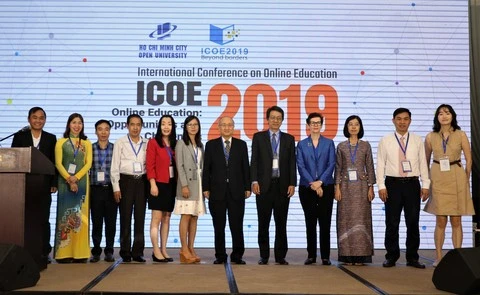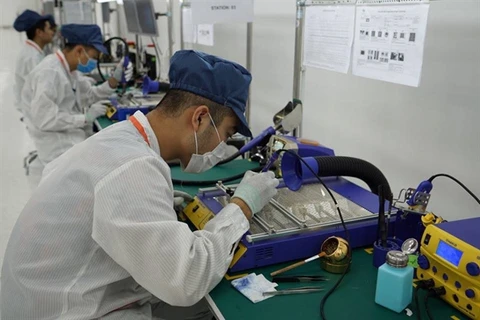 An overview of 7th Asia Pacific Career Development Association conference (Photo courtesy of RMIT Vietnam)
An overview of 7th Asia Pacific Career Development Association conference (Photo courtesy of RMIT Vietnam) HCM City (VNS/VNA) – As many as 250 delegates from 22 countries and territories discussed career development in the era of Industry 4.0 at the 7th Asia Pacific Career Development Association (APCDA) conference that opened in Ho Chi Minh City on May 22.
The APCDA conference is a renowned forum for sharing career development ideas and practices in the Asia Pacific region, and engaging the world about these insights.
The annual three-day conference titled “Navigating Career Development in the Age of Industry 4.0” seeks to promote collaboration among career practitioners throughout the Asia Pacific region, and inspire existing and potential career practitioners to deliver theory-based and research-driven career development services.
It also promotes research in the field of career development, and advocates workforce policies and practices that foster inclusion and access to decent work for all.
Participants include career and school counsellors, counsellor educators, workforce development professionals, human resource professionals, and career development practitioners at all age levels and in all settings.
Felicity Brown, manager, career consulting and development at RMIT Vietnam’s careers and industry relations unit, said the conference would help local schools, universities and companies interested in career development access a wealth of best practices across the Asia-Pacific.
The APCDA annual conference offers its members excellent professional development opportunities and valuable networks in this emerging field, he said.
The presentations at the APCDA conference covered the spectrum of career planning, development and job placement in school, university and private practice settings as well as labour market, workforce and international issues.
Tran Anh Tuan, Deputy Director of the Institute of International Economics Training and Research, said Vietnam has in recent years experienced shortages for workers with high-level, high-demand skills.
“The shortages result from the choice of majors. Some majors are highly valued though they do not meet the needs of society. Career guidance services must be enhanced and embedded in secondary and high schools,” he said.
“At the same time forecasting human resource needs, labour market information and vocational training activities are not synchronised and do not effectively link demand for vocational training, availability of vocational training and demand for workers,” he said.
He forecast high demand in certain areas like information technology, bio-technology, automation, management, finance, logistics, tourism and hospitality, and the creative industry.
Dean of education and professor of educational psychology at the Chinese University of Hong Kong, Alvin Leung, spoke about the Career and Life Adventure Planning Programme (CLAP).
CLAP is a comprehensive career development programme in Hong Kong meant to equip youths with career development competencies to pursue their aspirations in a rapidly changing society.-VNS/VNA
VNA






















